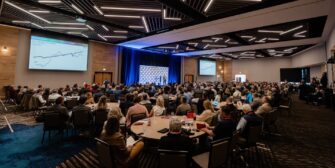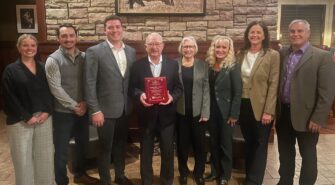Preview a ‘taste’ of family business at one-of-a-kind dinner
Recent News
When business owners retire: Well-known entrepreneurs share strategies to life after role as CEO
Posted in Member News, PFBA, Q&A | January 5, 2021
Creating a plan to transition family business leadership is one thing – executing it is another.
What does retirement really look like? Should you use a board of directors? And how should it be structured? Do you still have an office?
While you might feel alone in trying to figure this out, the issues faced by family business owners tend to have many common elements.
On Jan. 8, Lloyd Cos. co-founders Craig and Pat Lloyd and Muth Electric co-founders Dick and Darlene Muth will share insight on their experiences.
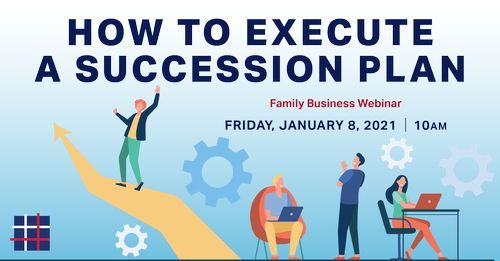
The hourlong webinar presented by the Prairie Family Business Association and facilitated by Sandra McNeely of Abbey Legacy begins at 10 a.m. To learn more and register, click here.
“If you are wondering how to start a succession plan or even wondering what the first step looks like, this webinar will provide you with a step in the right direction,” said Stephanie Larscheid, executive director of the Prairie Family Business Association.
“Taking one hour to learn from families who have already taken steps will really help your business and your family. And for those who are currently working through a plan or are in their retirement phase or are in a younger generation, this will give you some strategies to consider as you figure out what is the best plan for you and your business.”
Without giving too much away, we sat down with the Lloyd and Muth families for a real-life look at retirement and the steps they took to get there.
For you, what does retirement look like?
Craig Lloyd: My idea of retirement is to do the things I want to do when I want to do them, and I’m grateful our leadership team has allowed me to do that. The only thing I have once a week is a Tuesday meeting where they bring me up to date on what is happening in the company. I can keep as active in the business as I want or not be as active.
Pat Lloyd: My involvement is mostly serving on our board of directors, which meets three times a year but had weekly calls in 2020 because of the changing circumstances related to the pandemic. I try to bring a different perspective to the board in making sure our family values and company culture are upheld in our decision-making.
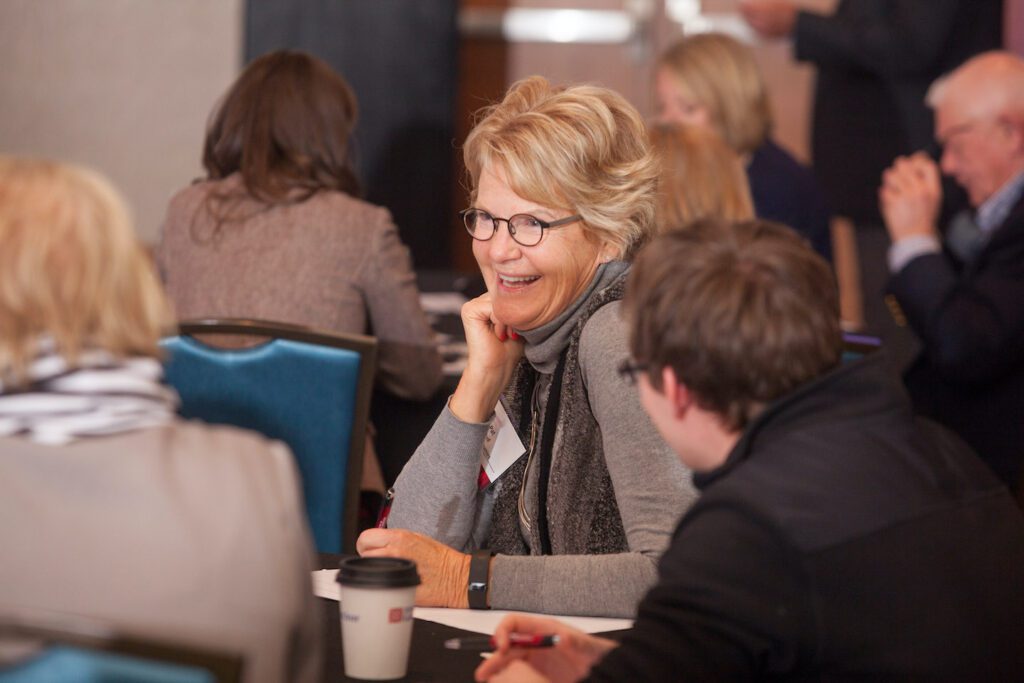
Dick Muth: I’m the chairman of the board, I work really hard staying out of any operational issues, and I like it that way. I like the freedom of being able to come and go as you want. There are times you have to be there, but it’s not often. Every other Monday, we have an executive meeting, and we have G1 (generation one), G2 and the top management in that meeting, and it’s to talk about what we should know, what’s happening and to keep G1 and G2 in the loop so they can learn more about the business.”
You both have some younger family members who are involved in the business and some who aren’t. What are some strategies you use to address that?
Dick Muth: Our Monday executive meetings are for both family members who work in the business and who don’t, so they can learn more about what’s going on. We have two G2 members who have nothing to do with Muth Electric and two that do. We also have two G3s in the office who are going to college and doing that online while working 30 hours a week, so that’s been fun. Darlene and I have taken on a mentoring role with G3, touching base, taking them out to breakfast or lunch and asking what’s going right and what would you like to see different. The idea is to make it a good experience for G3, where they feel they’re contributing and learning.
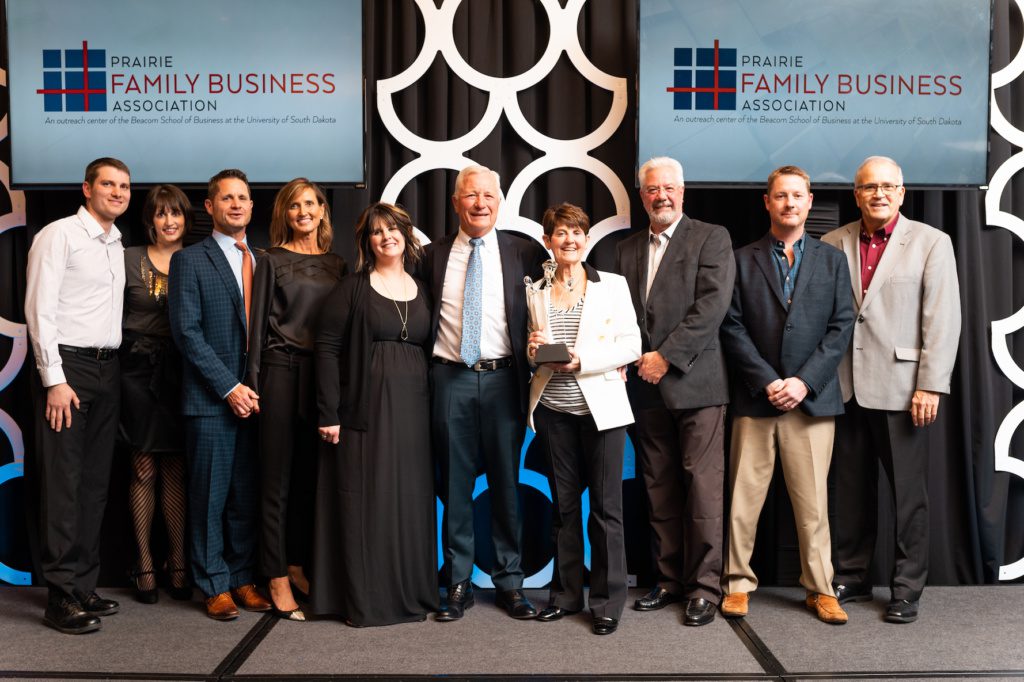
Craig Lloyd: Our nephew Chris Thorkelson took over as CEO in 2016, our daughter Christie runs property management, and our daughter Mary manages our board of directors and our philanthropic endeavors. But we’re also in the process of setting up a family office, and we have a system for family owners not actively involved in the business to still have a way for their input to be taken into consideration by the board of directors.

You both use a board of directors. How valuable has that been as you’ve entered retirement, and what advice would you give to others about working with one?
Pat Lloyd: It’s definitely been valuable. We have two family members and five outside members on our board. Our members bring expertise in accounting, banking, building and family business. It’s been beneficial to Craig and me in retirement and to the leadership team as well.
Craig Lloyd: And while we have a great board, people like Dick have also helped me tremendously. And other families we met through the Prairie Family Business Association were a big help too. We’re all trying to help each other.
Dick Muth: We started our board in 2017, and it’s an advisory board, whereas Lloyd Cos. uses a fiduciary board, so there are differences, and an adviser can help you work through the best approach for your business. In our case, we’re fortunate to have five outside members representing area manufacturers as well as family businesses, which brings extremely valuable expertise. Darlene and I serve on the board as well.
How did you ultimately decide the time was right for you to retire?
Craig Lloyd: For me, it was seeing some of my friends either die or have some health issue come up, and they hadn’t prepared anyone to take over. And I saw what can happen to a business, and it’s quite dramatic. We have 200 employees and we look at them as part of the family, and we don’t want to let any one of those families down. I definitely wanted to set a time when I was going to retire, so management wasn’t always guessing, and wanted to make sure we had the right person in the right seat, and I think we made a good choice. My date was five years ago, I was 68, got my Social Security check, and they told me to retire. The best advice is don’t hang on too long.
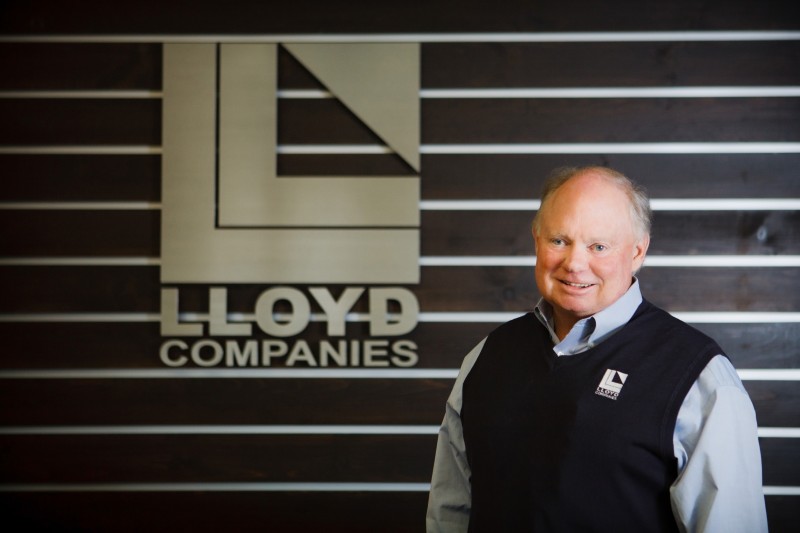
Dick Muth: I went out of operations three years ago at age 70. If you don’t step away and let other people make decisions, make mistakes and learn from it, and all of a sudden you drop over of a heart attack, you’re leaving the company and the family business in peril. And we have about 400 employees that would really question how you handled your affairs when it was obvious none of us are going to be here forever. And you’ll be here less time if you’re 70 than if you’re 50, probably, so you have to train other people to take your spot and let them roll with it.
Do you still have an office? And is it difficult to fully disconnect from your previous role?
Dick Muth: Darlene and I both have an office. Someone asked me, “When do you want to give up your office?” I said never. So when I’m in town, I’ll go in the office usually every morning, but a lot of times I leave at noon or we head out of town. The first thing I had to do is if someone came to me with any kind of operational question, I would say: “I’m not in operations anymore. Go see your immediate supervisor.” That’s happened way, way less now. And I can be in the office doing lots of things that aren’t operations but involve investment-type questions or farmland I’ve developed habitat on for future generations, and I really like doing that.
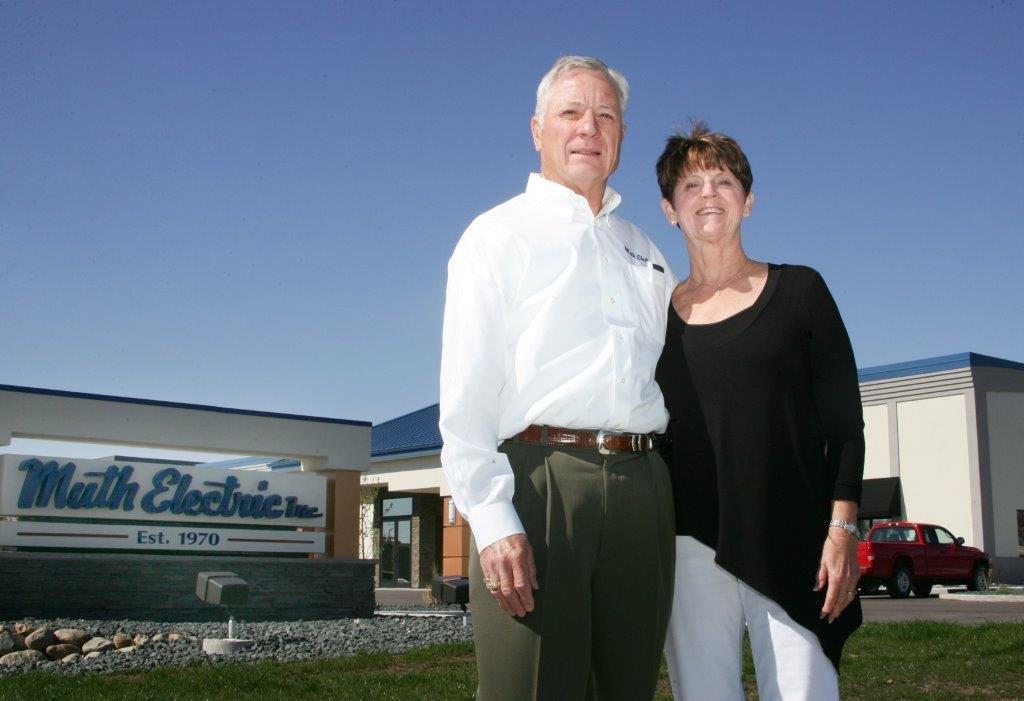
Craig Lloyd: I also have an office, and I can’t say I’m as successful as Dick telling them to go somewhere else. I still have a problem when somebody asks me a question not to answer, but it’s getting less and less. Being out of town on and off is helpful for our staff, and really most of what comes up is getting handled in the proper channels. I think a lot of that is because of the board. The team knows they have to do their own budgeting, their own extensive succession planning, and they have to make their own report to the board, and that’s been a huge help with the transition and getting out of day-to-day management.
Ready to learn more? Click here to sign up for the Jan. 8 webinar.

